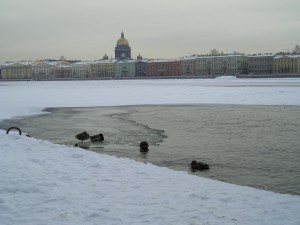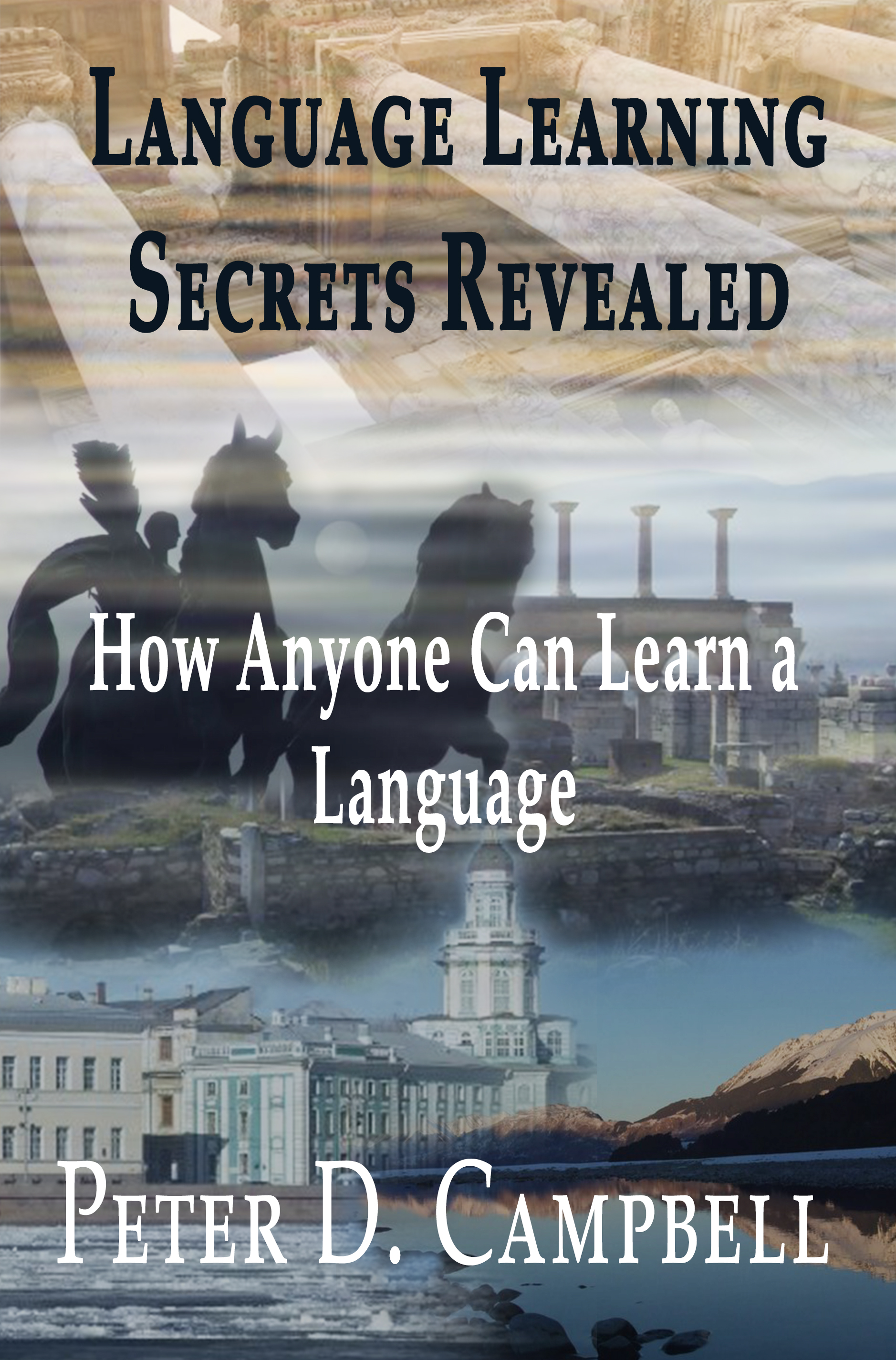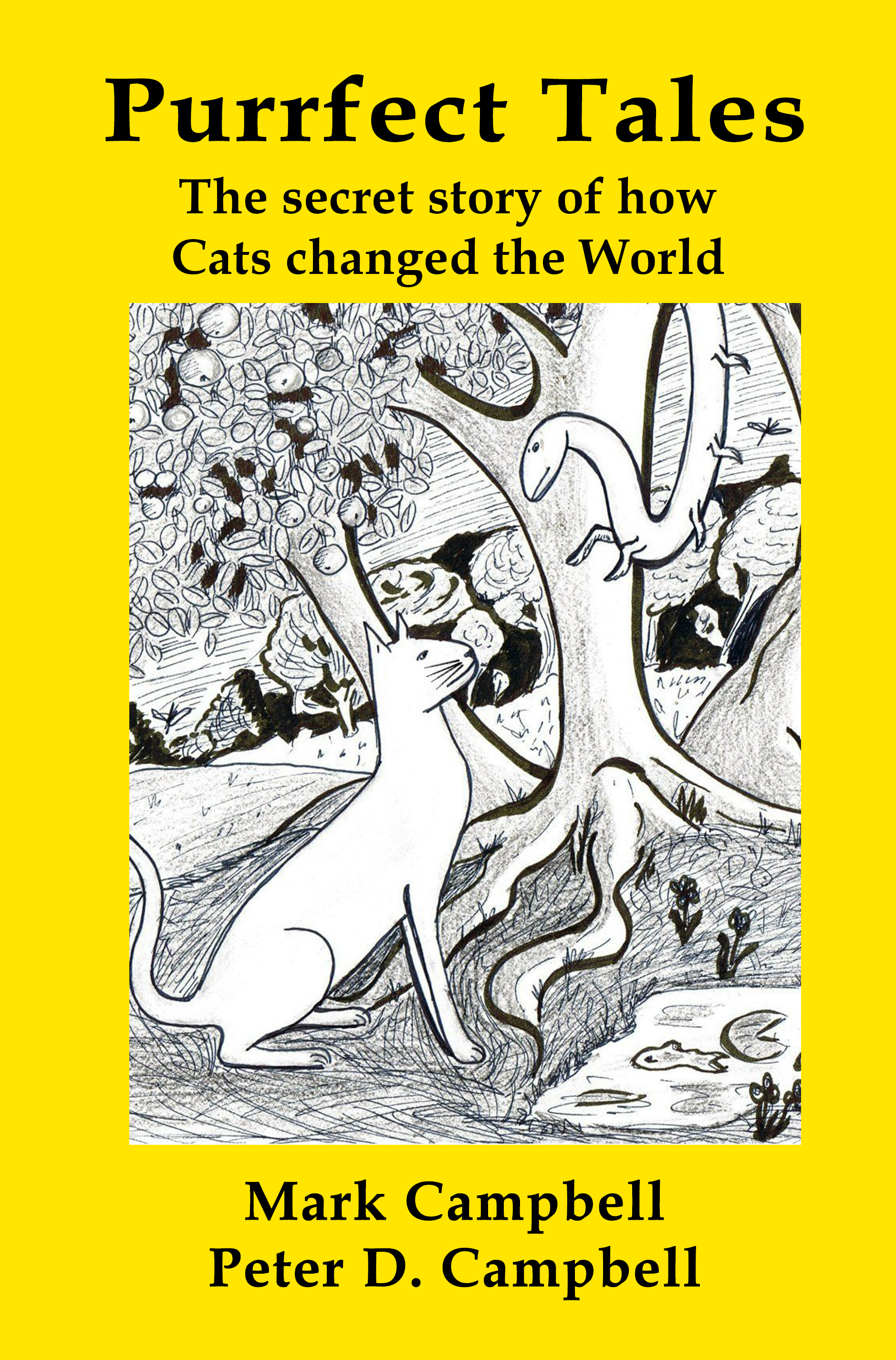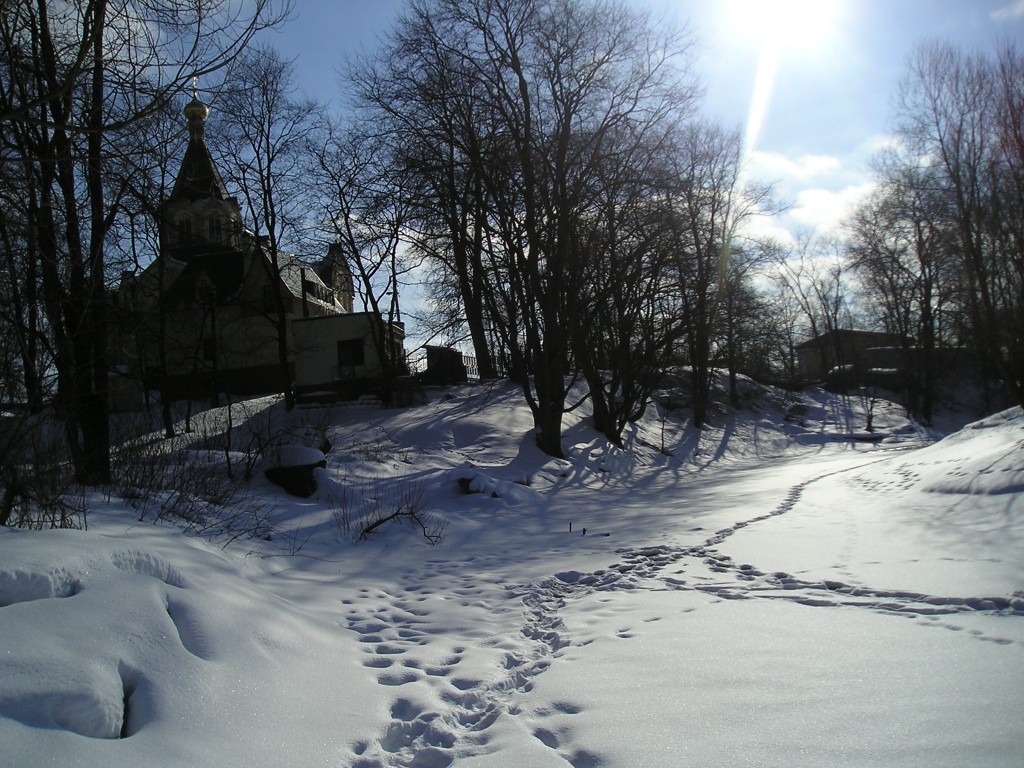 It is December, people talk excitedly about the upcoming holidays – what they want to do, where they want to go. Travel agents advertise frenetically, trying to out do the cut throat competition for trips to exotic and warm destinations: Egypt, India, Thailand, and for the first time this year I even have heard advertisements for Indonesia. Times change rapidly here.
It is December, people talk excitedly about the upcoming holidays – what they want to do, where they want to go. Travel agents advertise frenetically, trying to out do the cut throat competition for trips to exotic and warm destinations: Egypt, India, Thailand, and for the first time this year I even have heard advertisements for Indonesia. Times change rapidly here.
But for the visitor there is little reason to leave. Outside a soft, steady fall of snow adds to the romance of the Christmas season and the backdrop of imperial, neo-classical buildings with a touch of the baroque creates a charming sense of the Old World which we never see or feel in the Southern Hemisphere. The contrast of trees bare of leaves with three centimetres of snow covering their branches brings back vague childhood memories of books and stories long since forgotten but now vaguely familiar.
But for all the romance of the winter season, I cannot feel the Christmas spirit. Maybe it is because for me in New Zealand, Christmas was always associated with holidays and fine weather, spending hours lying out in the sun, swimming or playing cricket, my brother constantly listening to the cricket on the radio – all of these things are absent. But it is more than just a lack of fine weather or cricket which defines Christmas and it is more than any sense of spirituality associated with the holiday, all of Christmas’ vestments are likewise absent. Instead of Christmas carols the shops play the latest pop hit from MakSim, a young singer, called “Winter”, following on from her last hit called “Become the Wind” – I imagine her next hit will be called “Becoming Snow”. The shops are starting to be decorated with Christmas trees, but they aren’t Christmas tress here, they are New Year’s trees. The holiday which we are all excited about is the New Year. Christmas will be celebrated, but only on 7 January, the traditional date for Christmas on the Orthodox calendar, and this is more the signal for the celebrations to end, we have ten days of holiday from the New Year, and so Christmas Day is a sombre reminder that the holiday is coming to an end and once more we must get up and go to work on darkened streets, in bitter-cold wind.
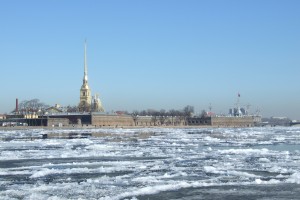 Russia is no longer an atheist society but 70 years of communism has left its mark. It had been a highly religious country, the Rus having converted to Christianity under the reign of Vladimir the Great in 988 AD. So devout were the Russians that an attempt to modernize either the Church or the society was met with strong opposition. In the 16th century a schism occurred when a new translation of the Bible was introduced. At the start of the 18th century Tsar Peter the Great had to introduce a “Beard Tax” to encourage the nobility to adopt “modern’ western clothes and abandon their traditions – the long beard being seen as a sign of Orthodox devoutness.
Russia is no longer an atheist society but 70 years of communism has left its mark. It had been a highly religious country, the Rus having converted to Christianity under the reign of Vladimir the Great in 988 AD. So devout were the Russians that an attempt to modernize either the Church or the society was met with strong opposition. In the 16th century a schism occurred when a new translation of the Bible was introduced. At the start of the 18th century Tsar Peter the Great had to introduce a “Beard Tax” to encourage the nobility to adopt “modern’ western clothes and abandon their traditions – the long beard being seen as a sign of Orthodox devoutness.
It was the Soviets and not Peter the Great who succeeded in creating a modern secular society. Following Marx’s doctrine that religion was the opium of the people, the Soviet authorities repressed the Church, never entirely shutting it down, but making life hard for monks and priests, some of them being repressed as part of the revolution and civil war, and then later in the 1930s during Stalin’s Great Terror – while the churches were often used for more “socially useful” purposes, such as warehouses. Religious holidays were no longer celebrated by the state. To encourage atheism, the government introduced secular holidays, placing an emphasis on the state rather than religion. It is this process which is fascinating.
When the Christian church was expanding one of the secrets of its success was the way it adopted former pagan symbolism, giving them Christian connotations and robbing the pagans of the very symbols which they used to identify themselves. This process also occurred with pagan celebrations. Christmas originates from the Roman Saturnalia which was celebrated in late December and was noted for its joviality and the exchange of gifts; May Day, a celebration now known as International Workers Day, was strongly associated with the Virgin Mary was also derived from pagan fertility rituals, its pagan roots can still be seen today with the May pole. So in many respects what we have seen in Russia is what has been a continuation of a long tradition of usurping and reusing former symbols for the new ideology. Despite some 72 per cent of the Russian population claiming to be Christian, it is the New Year rather than Christmas which remains the Celebration of the year.
Similarly, Easter in particular is celebrated within the family, but religious celebrations are not state holidays, each family celebrates them as they desire and we all attend work on these festive days. The absence of state involvement and the continuation of the normal working week creates the sense of a very secular society.
So as I walk through the glittering arcades selling fur coats and mobile phones – a striking contrast of what Russia had been in the 1990s – I forget about the Christmas season, my mind drifts onto other subjects, I try not to think about the elections or about Russian policies and trends within the society. I try to enjoy Russia for what it is, an exotic world, a world of romance and mystery and a world strikingly different from the one I knew in New Zealand.
Be sure to like Intrepid Adventure on Facebook and check out Peter Campbell’s latest books on Amazon.com.
Copyright © Peter Campbell 2014, www.intrepid-adventure.com
